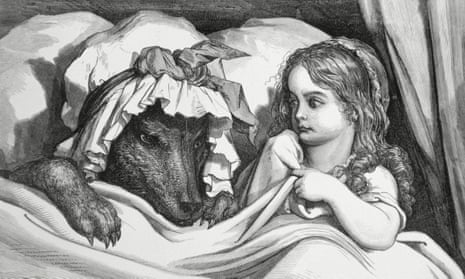Several schools across Barcelona are considering purging their libraries of stereotypical and sexist children’s books, after one removed around 200 titles, including Little Red Riding Hood and the story of the legend of Saint George, from its library.
The Tàber school’s infant library of around 600 children’s books was reviewed by the Associació Espai i Lleure as part of a project that aims to highlight hidden sexist content. The group reviewed the characters in each book, whether or not they speak and what roles they perform, finding that 30% of the books were highly sexist, had strong stereotypes and were, in its opinion, of no pedagogical value.
These included several versions of the stories about Little Red Riding Hood and Saint George, a popular read at Catalonia’s celebration of the Diada de Sant Jordi on 23 April. The books were removed, with less stereotypeheavy versions of the stories remaining on shelves.
According to Associació Espai i Lleure, if young children see “strongly stereotypical” depictions of relationships and behaviours in what they read, they will consider them normal. Anna Tutzó, a parent who is on the commission that reviewed the books, told El País that “society is changing and is more aware of the issue of gender, but this is not being reflected in stories”. Masculinity is associated with competitiveness and courage, and “in violent situations, even though they are just small pranks, it is the boy who acts against the girl”, which “sends a message about who can be violent and against whom”.
El País reported that other schools in Barcelona are reconsidering the contents of their libraries, with Montseny school planning to remove those it believes to be sexist, and Fort Pienc school’s parents’ association setting up a gender-equality commission to review books.
“The type of books children read is very important, because traditional books replicate gender stereotypes, and it is good to have books that break these,” Estel Clusella, the head of Fort Pienc’s parents’ association, told El País. “At the age of five, children have already established gender roles, they know what it is to be a boy or a girl and what that means. So it’s key to work with a gender perspective from the infancy stage.”
Tàber school will now review the books in its primary library, but will take a different approach than it did with its infants library. Older children, it says, are more able to critically analyse the texts, and to reflect on the stereotypes and sexism they might contain.
“In early childhood, kids absorb everything around them, which allows sexist stereotypes to be normalised,” Tutzo told El País. “Primary school students [aged six to 12], however, have a greater ability to think critically, and the books can be an opportunity to learn, so that they themselves recognise the sexist elements.”
Last year, research from the Observer and Nielsen found that male characters were twice as likely to have had a leading role in children’s picture books, often in stereotypically masculine roles, and that the characters who spoke were 50% more likely to be male. “It gives out a message about how society sees you,” said children’s laureate Lauren Child at the time. “If boys get the starring roles in books – both as the good and bad protagonists – and girls are the sidekicks, it confirms that’s how the world is and how it should be. It’s very hard to feel equal then.”
The Let Books Be Books campaign, meanwhile, has pushed for an end to gendered book titles in the UK, and has persuaded 11 children’s publishers to remove the words “for boys” and “for girls” from book covers since 2014.
